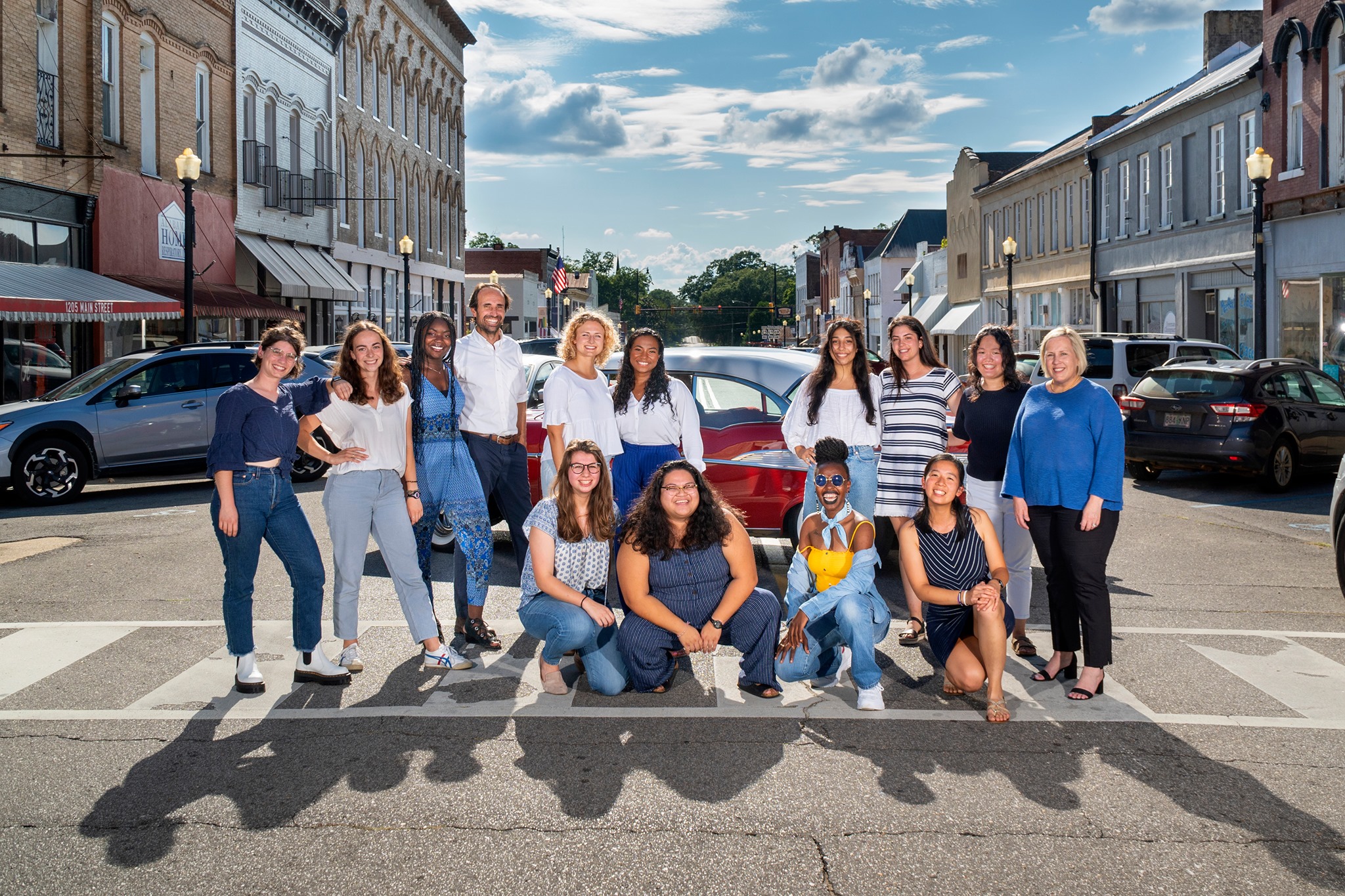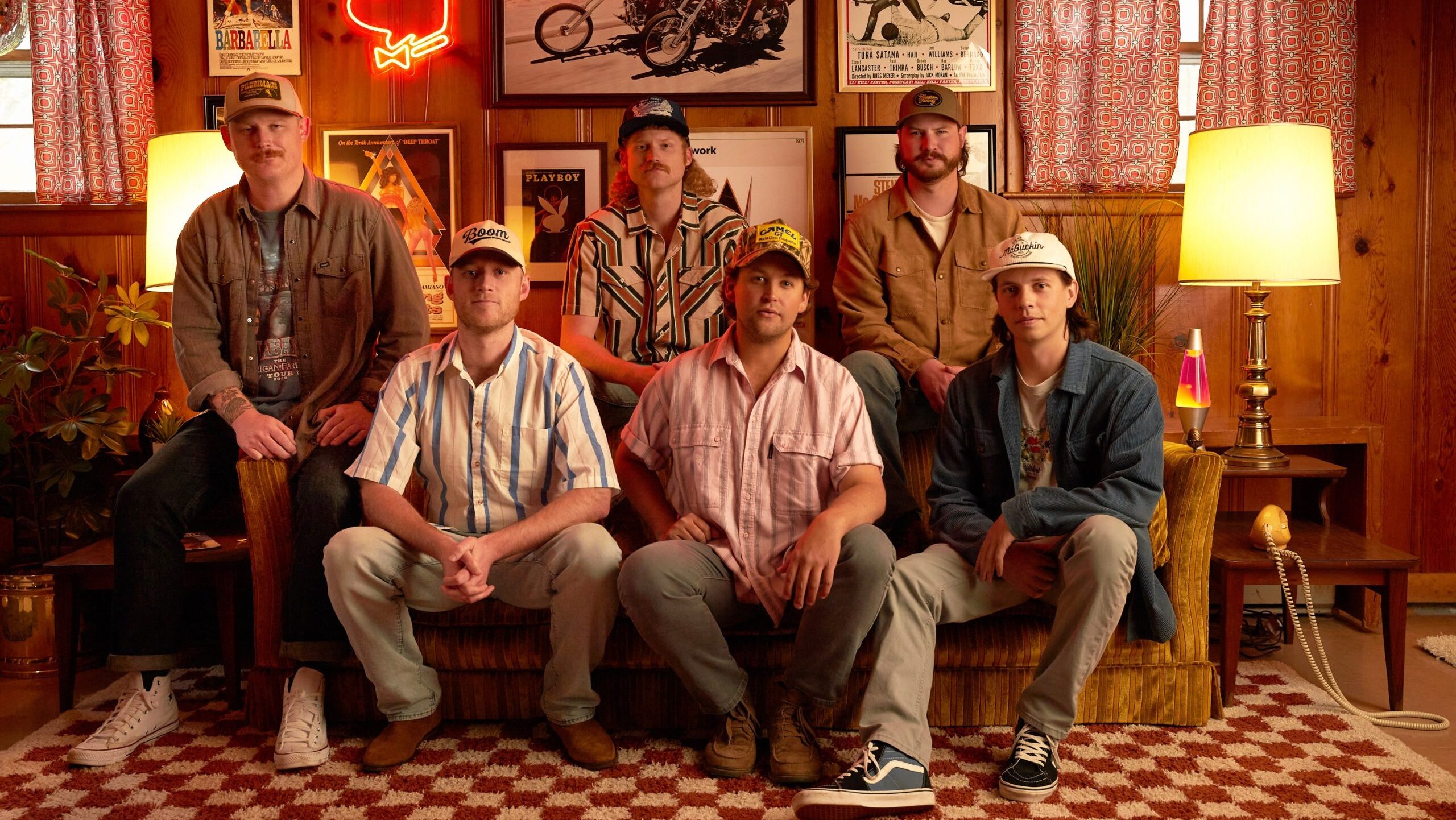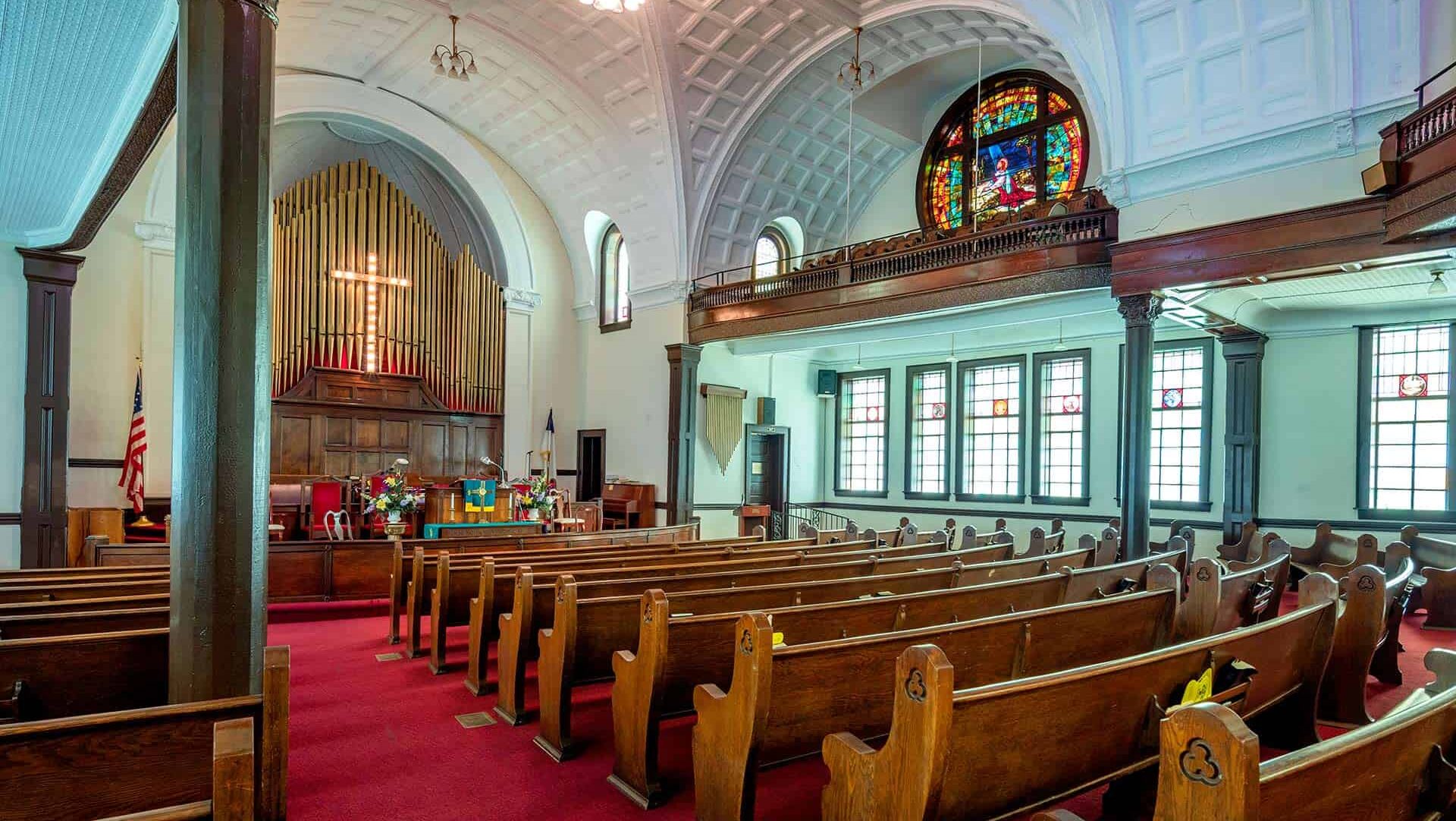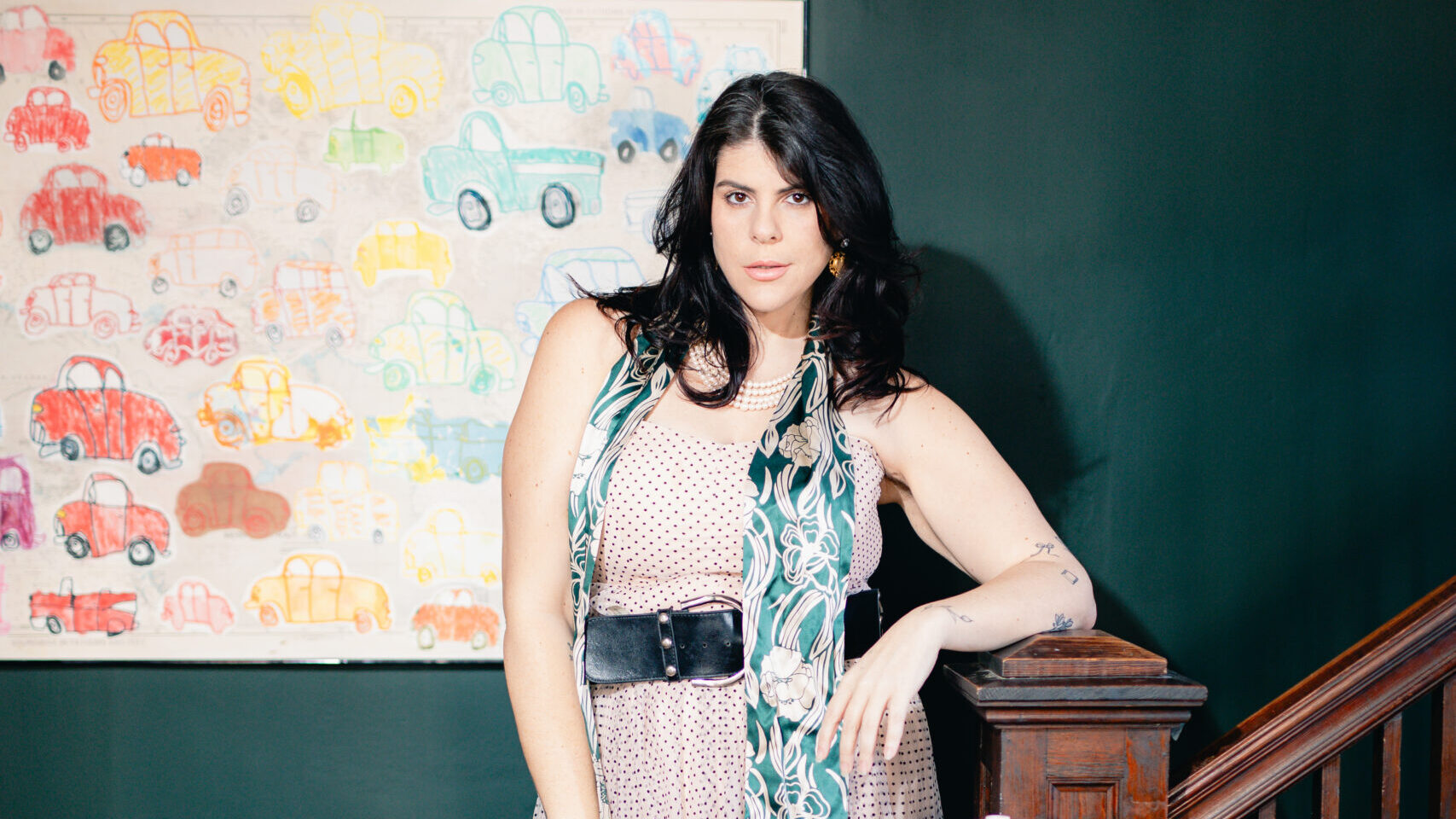When you first hear the name Project Horseshoe Farm, images of livestock and agriculture may first come to mind. And while the image of a rural setting isn’t altogether wrong, it also isn’t a complete picture of all that Project Horseshoe Farm is about. “We wanted a name that was intentionally somewhat ambiguous and that was connected to our rural community,” explains the founder Dr. John Dorsey, “and our first housing program for women was located on Horseshoe Bend, so we decided on Project Horseshoe Farm.” Since then, Project Horseshoe Farm – a nonprofit organization with a vision to bridge the gap in healthcare and community support – has been working hard to answer the call of community health and how aspiring future leaders can act individually and collectively to help vulnerable neighbors and strengthen community health.
Located in the heart of rural Alabama, Project Horseshoe Farm is addressing the healthcare disparities that are often prevalent in rural areas. Currently, Horseshoe Farm has locations in Greensboro, Alabama; Perry County, Alabama; and Pomona, California. Greensboro is tucked in the center of Hale County, Alabama, which has recently been recognized as a “Bright Spot” in the Appalachian counties. According to the Appalachian Regional Commission, “Hale County’s classification as a Bright Spot means that, on average, the county performed better than expected on a number of health outcome measures, given its characteristics and resources—that is, the socioeconomics, demographics, behaviors, health care facilities, and other factors that influence health outcomes.” This is in large part attributed to the work of three specific community leaders and their health initiative programs that are making a difference in Hale County, one of which is Dr. John Dorsey and Project Horseshoe Farm.
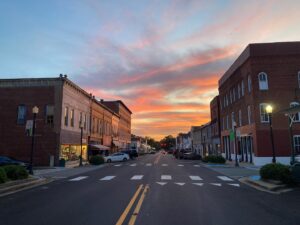
(Project Horseshoe Farm Greensboro/Facebook)
Founder John Dorsey, originally from Orange County, California, completed a residency in community psychiatry where he witnessed the physical and emotional turmoil of those struggling with homelessness, incarceration, and addiction. At a Redlands Forum, Founder John Dorsey of Project Horseshoe Farm reflected on the current state of healthcare, acknowledging its complexity and stating, “Healthcare is in a mess right now, but I don’t necessarily think there is a silver bullet that fixes it all.” He went on to explain that healthcare often tries to offer “technical solutions for things much broader than technical solutions could really address.” Because of this, he created Project Horseshoe Farm to address the need for a more comprehensive solution by extending the reach of healthcare beyond a doctor’s office and into the community and homes.
Dr. Dorsey emphasizes the importance of developing a system that not only meets immediate needs but also mobilizes the next generation of community health leaders, engaging college and medical students in shaping future solutions. Each location of Project Horseshoe Farm offers Community Health Gap Year Fellowships, Internships, and volunteer opportunities for the next generations of community health leaders to get involved and gain experience with real-life health needs as well as build long-term relationships with communities. This multidimensional and integrative approach to healthcare aims to address broader healthcare issues and emphasize the human side and community aspect of healthcare.
The organization also draws parallels between healthcare and education, promoting a community-based citizenship approach. Recognizing that being a doctor encompasses more than academic excellence, they introduced the GAP year program, similar to Teach for America in the education sector. What began with three students has grown to involve more than 175 students since its founding, emphasizing the significance of incremental small steps in preparing the community health leaders of tomorrow. Dr. Dorsey explains, “When I think about Horseshoe Farm, so much of what we do focuses on caring and healthy relationships. Especially in this era where social connections and our social fabric seem to be fraying at so many levels, we are steadfast in our focus on the enormously underappreciated value of in person healthy social connections, care for our vulnerable neighbors, and engaging in real world relationships within our communities.”
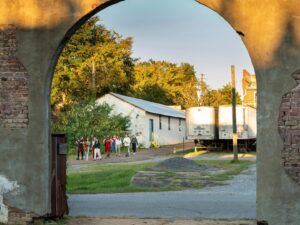
(Project Horseshoe Farm Greensboro/Facebook)
While Horseshoe Farm has already been making a great impact through their work, there are more big plans for growth and impact on the horizon. “We see community health work as long term work, and even though we are now in our 15th year, I believe we are still very much at our early stages as an organization,” states Dr. Dorsey. “Last year we launched what we believe is the first downtown indoor pickleball court in the Black Belt. The court in Greensboro has been a big success with the kids and adults we serve and is beginning to take hold and gain momentum with our broader community. Because of its success, we plan to build a second court in Greensboro and would love to launch one at our site in Marion, Alabama,” he adds. In the coming year, they plan to expand these types of recreational community center spaces to create more enjoyable and healthy spaces for children and adults they serve and to help connect the broader community through healthy relationships, exercise, and service to others.
As Horseshoe Farm continues its impactful work with partner communities, the organization envisions a long and promising journey ahead. Dr. Dorsey reflects on the expanding reach of their model, stating, “Beyond the long runway I see ahead in our work with our three partner communities, we have begun to receive requests from people in other communities across the country interested in learning how they can establish something similar to Horseshoe Farm in their communities.” This growing interest signifies a potential shift in addressing community and social needs on a broader scale. Dr. Dorsey draws a parallel to historical transformations, suggesting, “We may be experiencing something similar to the early stages of the industrial revolution as our nation and world dive headlong into a new economic and social order shaped by a digital and technological revolution.” In response to this evolving landscape, Dr. Dorsey suggests that new institutional forms like Horseshoe Farm may be called for, highlighting the necessity of innovative approaches to meet the changing needs of communities influenced by this technological revolution.
There are too many stories to recount of all the positive impact Horseshoe Farm is having on its communities. And more and more stories are happening each and every day. Some of these stories include after-school programs, independent living housing programs, community center events, ACT tutoring, college and career guidance, health partnerships with Fellows, alumni gatherings, alumni success, and more. To hear more stories and find out more about how to get involved, visit the Project Horseshoe Farm website, check out their annual newsletter, or contact them at greensboro@projecthsf.org or marion@projecthsf.org.
